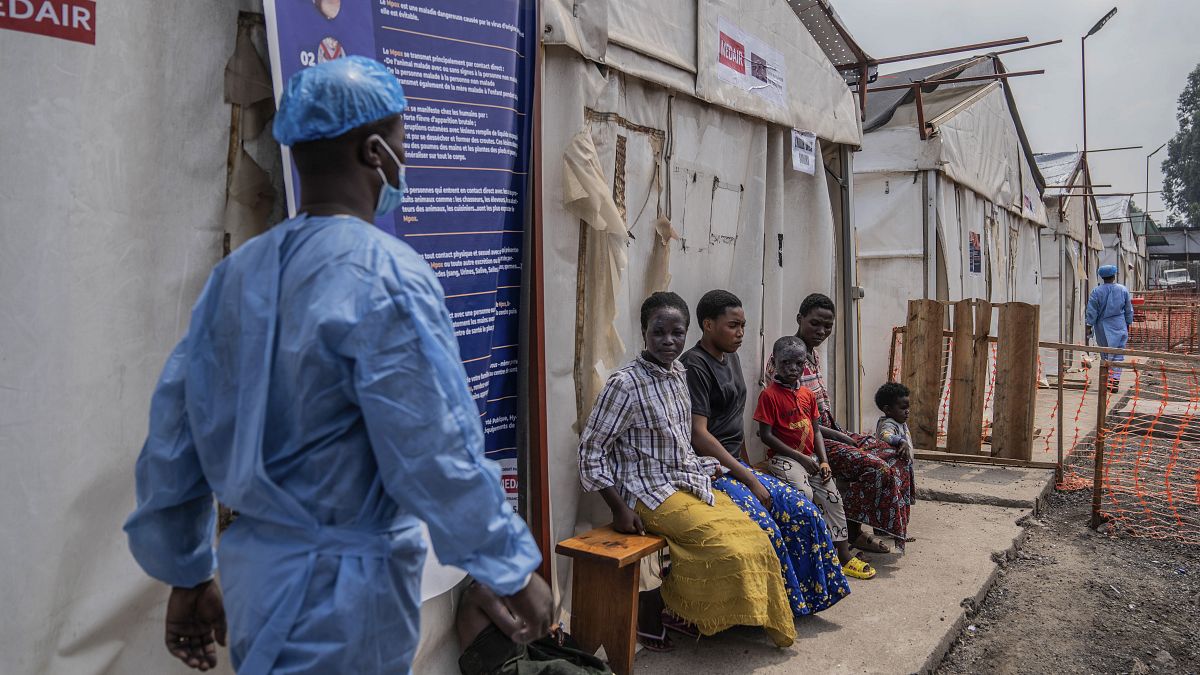Most of the mpox cases and deaths have been in Congo, with a new strain that is likely more transmissible spreading there.
The Democratic Republic of the Congo (DRC) hopes to receive vaccine doses to address its mpox outbreak by next week, the Congolese health minister said on Monday.
More than 16,000 mpox cases have been confirmed in the country and roughly 570 deaths, with the virus spreading in some 17 African countries, the DRC's health minister Samuel Roger Kamba told reporters.
The mortality of the virus in the DRC is currently at around 3.4 per cent, he added.
"The vaccine is only part of the response. The first response is hygiene measures," Kamba said. "It is contact that spreads the disease," he added.
The outbreak in multiple African countries prompted the World Health Organization (WHO) last week to declare mpox a global health emergency.
The infectious disease, caused by the monkeypox virus, can cause a rash or lesions which can spread through close contact or sex.
Kamba said the DRC needed some 3.5 million vaccine doses against mpox to protect people, adding that once the country gets vaccines they will need to use them despite people's hesitancy.
Most cases and deaths globally have been in Congo.
Young people and children are the most impacted there, the minister added, pointing out that people who had the smallpox vaccine have protection against mpox, but since these vaccinations stopped in the 1980s, young people are still susceptible.
The international organisation Gavi, the Vaccine Alliance said it planned from 2026 to establish a "global stockpile" of mpox vaccines and in the interim to support the outbreak response in the DRC.
Risk level raised in Europe
European health authorities raised the risk level for mpox last week, saying it is "highly likely" there will be more imported cases of mpox clade I, the strain that is spreading in Africa.
The variant of mpox that caused the 2022 outbreak, called clade II, continues to circulate in Europe.
"Two years ago, we controlled mpox in Europe thanks to the direct engagement with the most affected communities of men who have sex with men," Hans Kluge, WHO's regional director for Europe, said in a statement on Tuesday.
"We put in place robust surveillance; we thoroughly investigated new cases contacts; and we provided sound public health advice... Learning from our success, we urged governments and health authorities to sustain those measures – to help eliminate mpox from Europe.
"But through a lack of commitment and a lack of resources we failed to go the last mile," Kluge said, adding that Europe should refocus on surveillance and diagnostics given the new emergency related to mpox clade I.
There is also a need for Europe "to act in solidarity" with the African region, he said, pointing out, however, that mpox is not the new COVID-19.
Sweden reported its first case of the new strain of mpox that is circulating in the DRC and is thought to be more transmissible.
The Swedish public health agency said, however, that the imported case "does not affect the risk to the general population".















